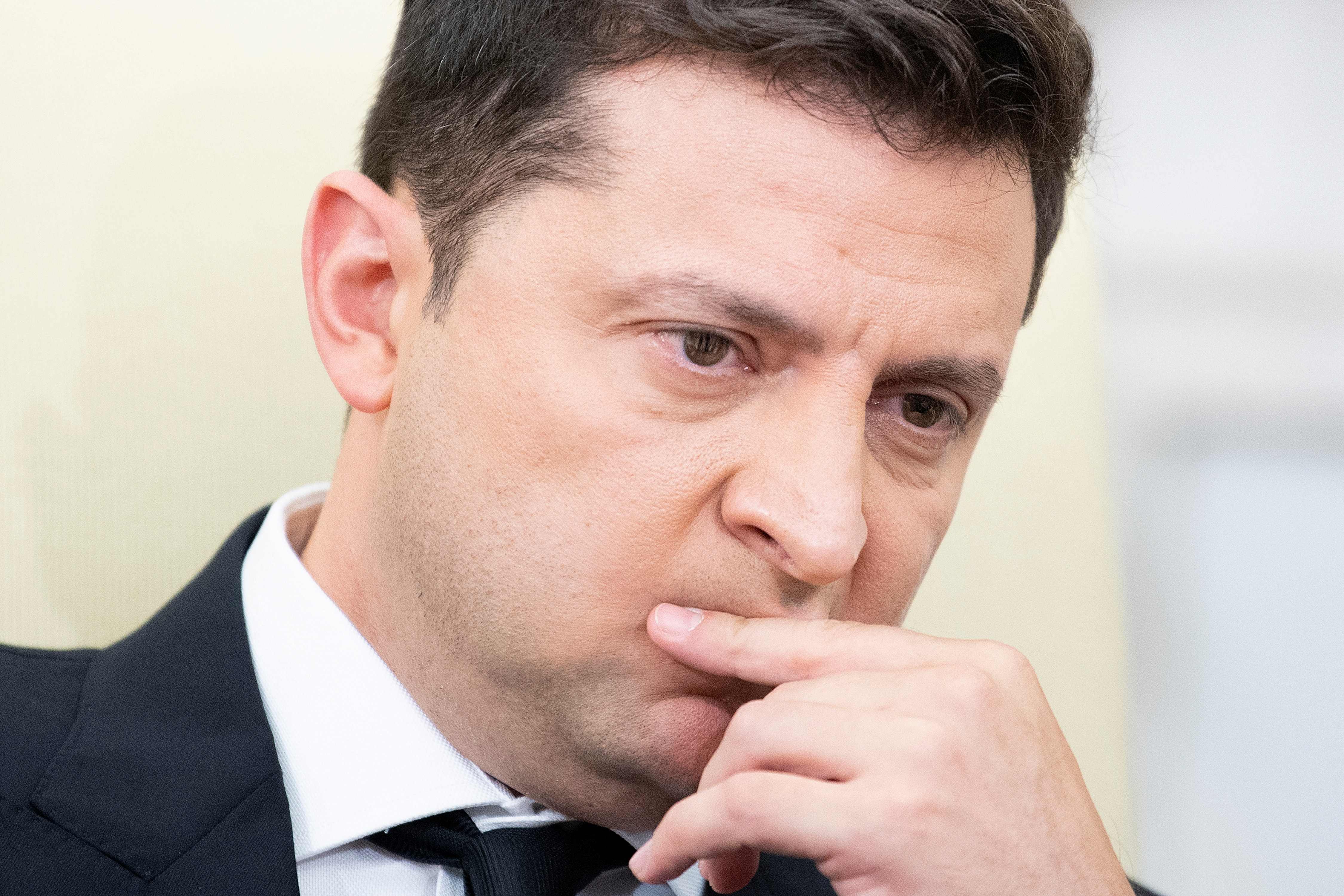Russia may launch all-out war with Ukraine, says President Zelensky
A multi-year undeclared war has already displaced millions and cost over 13,000 lives

Your support helps us to tell the story
From reproductive rights to climate change to Big Tech, The Independent is on the ground when the story is developing. Whether it's investigating the financials of Elon Musk's pro-Trump PAC or producing our latest documentary, 'The A Word', which shines a light on the American women fighting for reproductive rights, we know how important it is to parse out the facts from the messaging.
At such a critical moment in US history, we need reporters on the ground. Your donation allows us to keep sending journalists to speak to both sides of the story.
The Independent is trusted by Americans across the entire political spectrum. And unlike many other quality news outlets, we choose not to lock Americans out of our reporting and analysis with paywalls. We believe quality journalism should be available to everyone, paid for by those who can afford it.
Your support makes all the difference.Seven years into a simmering conflict that has cost thousands of lives, Ukrainian president Volodymyr Zelensky has starkly warned that Russia has not given up on the idea of all-out war.
Speaking at the Yalta security forum in Kiev on Friday, Volodymyr Zelensky said a major military operation remained a “palpable possibility” and that tensions between Kiev and Moscow were growing to such an extent that a “precipice” was now emerging between the two neighbours.
“All-out war would be the biggest blunder on Russia’s part,” he said. “It’s a spooky scenario but unfortunately it isn’t unlikely. The danger is reaching a point of no return.”
An undeclared war has undermined relations between the two countries since 2014 – focused first on the annexation of Crimea in March of that year, a move declared illegal by the United Nations, before turning towards the eastern Ukrainian Donbas region, where Ukrainian troops continue to fight with Russian-backed separatists.
Last year, Russia brought an estimated 100,000 troops to Ukraine’s eastern and southern borders in an operation that showed Moscow’s teeth – even if there appeared to be little danger of it developing into something more substantial. Mr Zelensky said intelligence showed that there were Russian boots on the ground in Belarus, which also borders Ukraine.
“The world has changed,” he said.
Despite early movement on prisoner exchange in 2019, the personal chemistry between the Ukrainian showman-turned-president and Russia’s autocratic leader of the past 21 years remains testy. Mr Zelensky confessed that he wished he had “more time” to understand his opponent.
In the meantime, the Ukrainian president insisted he remained committed to developing a “constructive discussion, [with] more substantive conversation” between the two leaders. He said that a meeting between the two, the possibility of which has been under discussion for several weeks, would have “tangible results” in prisoner exchange and demining.
Mr Putin, on his part, remains committed to the notion that Ukraine is not a fully sovereign state – at least, that appears to be the main premise of an extended essay on “Russian-Ukrainian unity” that was published in July.
The Ukrainian leader took a swipe at that claim, arguing that respect for national sovereignty worked in a reciprocal manner. “If you respect people, they respect you back,” he said. Intelligent Russians understood that Ukraine was an independent nation, he said, adding that state propaganda had left its calling card on “more average citizens”.
“Russian media policy is now predicated on disrespecting Ukrainian independence. Unfortunately it does break down the average person,” he said. “It’s dangerous because we have no option but to live as neighbours.”
Mr Zelensky, who has just returned from an important visit to the United States, said he had discussed Russian intentions in Ukraine at length with Joe Biden. The American president lent a sympathetic ear, he said, but remained silent on the issue of Nato membership.
That prospect remains a major irritant in relations with Russia, with Moscow suggesting a declaration of neutrality is key to resolving the current conflict.
Ukraine’s leader said that Nato risked losing relevance if it kept its doors shut to the “largest country in Europe”.
“If you want Russia to strengthen, you keep Ukraine out,” he said.
Join our commenting forum
Join thought-provoking conversations, follow other Independent readers and see their replies
Comments